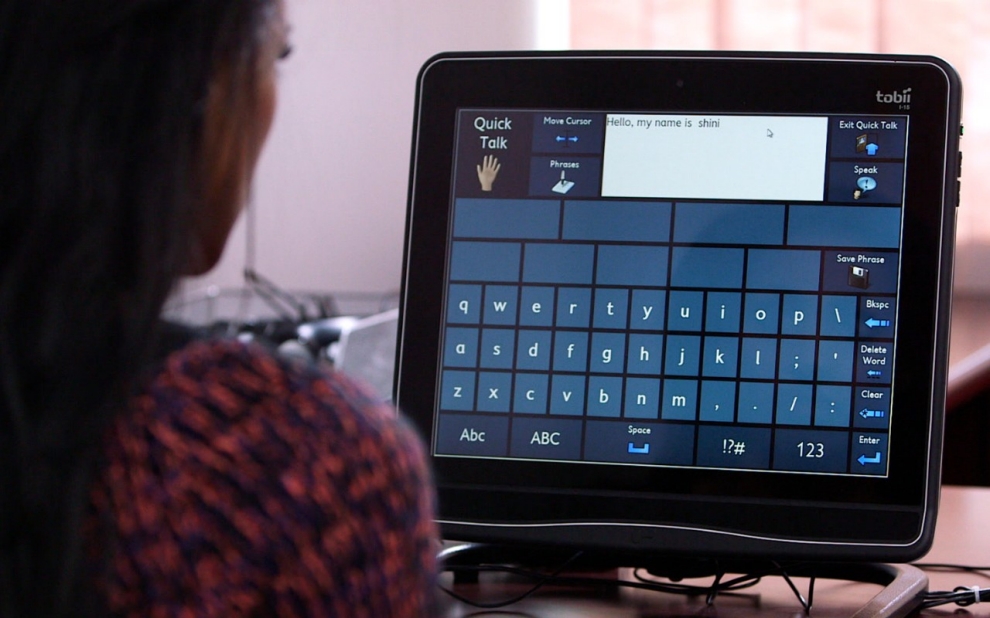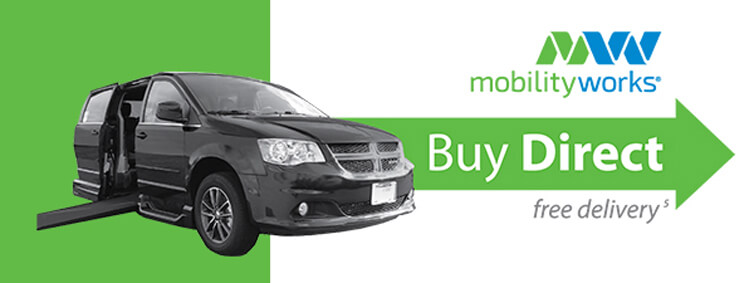Prices
(1) Prices exclude government fees and taxes, any finance charges, any dealer document processing charges, any electronic filing charge, and emission testing charge. Prices are subject to change; please see store for details and eligibility of any rebates. We reserve the right to change any information at any time, including prices and make no guarantee on the accuracy of the information contained herein
Loan Payment Calculator
(2) The results of this loan payment calculator are for comparison purposes only. Estimated Payment will be an approximation, actual payments from a financial institution may vary. Subject to credit approval and terms.
Fuel Economy
(3) This information contains EPA estimates for this vehicle when new. Actual fuel economy will vary for many reasons, including driving conditions and how the car was driven and maintained. Aftermarket modifications to the vehicle can affect fuel economy, especially those that change the vehicle’s weight, aerodynamics, or wheel/tire size. Estimates based on data from fueleconomy.gov.
One Free Year of ProtectionWorks
(4)With a purchase of any vehicle. Retail value of $199. Offer not valid on prior purchases. Excludes accessible vehicles with over 150,000 miles. ProtectionWorks roadside assistance is provided by MobilityWorks through Axiom Product Administration.
Buy Now FREE Delivery Anywhere in the United States
(5) Free delivery within the United States in valid with the purchase of an accessible vehicle. Delivery not available in Alaska or Hawaii. Offer valid 1/1/2024 – 3/30-2024. Prior sales excluded. Can only be combined with Manager’s Special vehicle inventory.
CPO
(6) Factory inspection, powertrain and conversion warranty provided by BraunAbility.
(7) ProtectionWorks roadside assistance is provided by MobilityWorks through Axiom Product Administration.
Home Test Drive
(8) Test drive must be within 100 miles of a MobilityWorks location. Valid driver’s license and proof of insurance is required. Only one test drive per customer. Maximum 100 miles per test drive. Fuel is not included. Vehicles available for test drive are subject to inventory availability on date of test drive. Smoking is prohibited in vehicle. Excludes test drives for commercial use.
CPO Factory Warranty
(9) Factory Warranty provided by original equipment manufacturer
Low Rate Guarantee
(11) Must present a current written loan commitment secured solely by the vehicle to be purchased from MobilityWorks indicating a term of 36-120 months, rate, points, fees, and amount to be financed issued by a recognized financial institution licensed to provide motor vehicle financing in the state where the vehicle is purchased.
(12) Limited to one accessible vehicle purchase per customer. Competing commitment must be presented prior to purchase. Other terms and conditions may apply. Excludes state subsidized rates and loans. Void where prohibited by law.
Free 24- Hour Test Drive
(13) Valid driver’s license and proof of insurance is required. Only one test drive per customer. Maximum 100 miles per test drive. Fuel is not included. Vehicles available for test drive are subject to inventory availability on date of test drive. Smoking prohibited in vehicle. Excludes test drives for commercial use.
Under $437 per month/$45k or Less
(14) Financing promotion require 20% cash down and 120 payments of $437 a month. 7.99% APR (Annual Percentage Rate) for 120 months. Monthly payments are based on sale price of $45,000 or less, down payment and approved credit. Accessible vehicle must be 2018 or newer with less than 75,000 miles. Not all buyers will qualify for offer. Approval is based on a credit score of 760 or higher.
(15) Free Delivery from the nearest MobilityWorks location to your home.
Buy Now – 5-Day Money Back Guarantee
(16) The 5-day period begins the day the vehicle is delivered and ends at 5:00 PM Central on the fifth day. Program availability may be subject to credit prequalification and all may not qualify. Additional program limitations, terms and conditions apply.
Rates As Low As: 2.99% for Up to 48 Months or 3.99% for Up to 60 Months or 4.99% for Up to 72 Months on All Accessible Vehicles With Brand New BraunAbility or Vantage Mobility Conversions
(19) Financing promotion valid through April 30, 2024. Must take delivery of vehicle by April 30, 2024. Promotion valid on all accessible vehicles with brand new BraunAbility or Vantage Mobility conversions and requires a cash or trade-in equity equal to 20% of total price. Rates as Low as 2.99% APR (Annual Percentage Rate) for up to 48 months or 3.99% APR (Annual Percentage Rate) for up to 60 months or 4.99% APR (Annual Percentage Rate) for up to 72 months. Monthly payments are based on the price of the vehicle, down payment, and approved credit. Not all that apply will be approved. Approval based on a credit score of 740 or above and minimum loan value of $8,000. Excludes Commercial clients.
0.9% APR for 60 Months
2023 Chrysler Voyager or Pacifica with Brand New Patriot or Flex Series Conversion from Driverge Vehicle Innovations or Brand New BraunAbility Rear-Entry Conversion
(20) Financing promotion valid through April 30, 2024. Must take delivery of vehicle by April 30, 2024. Promotion valid on a 2023 Chrysler Pacifica or Voyager with a Brand New Patriot or Flex Series conversion from Driverge Vehicle Innovations or Brand New BraunAbility Rear-Entry Conversion and requires a cash or trade-in equity equal to 20% of total price. 0.9% APR (Annual Percentage Rate) for up to 60 months. Monthly payments are based on the price of the vehicle, down payment, and approved credit. Not all that apply will be approved. Approval based on a credit score of 720 or above with a minimum loan value of $8,000. Prior sales excluded. Cannot be combined with any other offers. Excludes Commercial clients.
FSA or HSA Eligible
(21) Not all medical equipment expenses at MobilityWorks are FSA or HSA eligible. MobilityWorks does not accept HSA or FSA cards as payment. Customer’s must request reimbursement from their plan administrator. Contact your plan administrator or employer for more information on how to provide the appropriate documentation for reimbursement and what medical care expenses are covered.
In Honor of Your Service – 10% off Your Rental – Fix number on website
(22) Subject to availability. Pre-scheduled appointment required and presentation of active or inactive military ID. Offer expires 12/31/24. Limit one coupon per customer. Promotional Code: 10%OFFVET
Service to and From Airport – Rental
(23) At participating locations. Additional fees may apply.
10% off Your Rental- Book Online
(24) Subject to availability. Reservation must be booked online in order to receive discount. One-time use. Cannot be combined with other offers. Offer expires 12/31/2024. Promotional Code: ONLINE10
Mobility Guard Extended Service Contract
(25) MobilityGuard Extended Service Contract is standard with every pre-owned vehicle purchased that is no longer covered by an original equipment manufacturer warranty due to mileage or age of vehicle. All other terms and conditions of MobilityGuard coverage must be met. MobilityGuard covers a vehicle with 150,000 miles or less and model year 2008 or newer. MobilityGuard is valid for the first 3 months or 3,000 miles after purchase. Excludes commercial use vehicles.
Prepaid Maintenance
(26) Offer does not include synthetic or synthetic blend oil changes. Taxes and shop fees additional. Cannot be combined with other offers.
Rental- Newer model vehicles with both side and rear-entry ramps available
(27) At select locations.
$4,000 in Dealer Savings on 2023 Accessible Toyota Sienna Hybrid with a new VMI Conversion.
(28) Dealer savings can be used on a 2023 accessible Toyota Sienna Hybrid with a new VMI conversion. Offer valid 4/12/2024–5/31/2024. Prior sales excluded.
2023 Accessible Chevrolet Traverse – $84,995 with Complimentary Leather Seating Plus Rates as Low as 2.99% APR for 48 Months
(29) Limited quantities available. Prices plus government fees and taxes, any finance charges, any dealer document processing charge, any electronic filing charge, and any emission testing charge. No other rebates or incentives are applicable. Offer only applies to 2023 Chevrolet Traverse 1LT with Brand New BraunAbility Conversion. Vehicle pictures shown are for illustration purposes only. Actual vehicles may vary. Offer ends March 30, 2024. Must take delivery of vehicle by April 30, 2024.
Referral Coupon
(30) Must present referral code prior to purchase. Offer valid up to 365 days from receipt of emailed coupon.
The Accessible 2022 Toyota Sienna-Spacious and Fuel Efficient – BraunAbility
(34) EPA-estimated 36 city/36 hwy/36 combined mpg rating for 2022 Sienna FWD models;35 city/36 hwy/35 combined mpg rating for 2022 Sienna AWD models. Use for comparison purposes only. Your mileage will vary for many reasons, including your vehicle’s condition and how/where you drive. See www.fueleconomy.gov.
Service – Pick Up and Delivery
(35) Must be within 50 miles of a MobilityWorks location.
FLEX Lease Option on Driverge Quiet Ride- $367 per month
(36) Closed-End Lease on Pre-Owned 2019 or newer Dodge Grand Caravan SXT or GTS with brand new Driverge Quiet Ride Conversion with mileage of 50,000 or more. For well qualified lessees through Banclease Acceptance Corporation. Adding options increases payment. $367 per month for 39 months. $11,793.75 down. First month’s payment, plus fees, taxes, title, NMEDA charge, any emission testing charge, and license fees extra. Security deposit waived. Lessee responsible for maintenance, insurance, payment, delinquency charges, and excess wear and tear. Mileage charge of .45/mile over 5,000 miles/year. Actual net capitalized cost $31,996.25. Net capitalized cost includes $1,295 acquisition fee. Total monthly payments $14,313 plus tax. Residual value is $29,390.50. Disposition fee of $995. No penalty for early termination. Option to purchase at lease end is $29,390.50. May not be combined with other offers. Must take delivery of vehicle by April 30, 2024.
Driverge Warranty
(37) Factory inspection, powertrain and consumer conversion warranty provided by Driverge Vehicle Innovations.
Patriot $399 Flex Lease – Voyager
(38) Closed-End Lease on Pre-Owned 2020 or newer Chrysler Voyager with brand new Driverge Patriot Conversion. For well qualified lessees through Banclease Acceptance Corporation. Adding options increases payment. $399 per month for 39 months. $13,795 down. First month’s payment, plus fees, taxes, title, NMEDA charge, any emission testing charge, and license fees extra. Security deposit waived. Lessee responsible for maintenance, insurance, payment, delinquency charges, and excess wear and ,tear. Mileage charge of .45/mile over 5,000 miles/year. Actual net capitalized cost 38,000. Net capitalized cost includes $1,295 acquisition fee. Total monthly payments $15,561 plus tax. Residual value is $35,946. Disposition fee of $995. No penalty for early termination. Option to purchase at lease end is $35,946. May not be combined with other offers. Must take delivery of vehicle by April 30, 2024
Double Your Savings Service Offer
50)Must present when service order is written. Not applicable on prior purchases or commercial service repairs. Cannot be combined with any other offers. One per client, per transaction. Taxes and shop fees are additional. Offer expires April 30, 2024.




